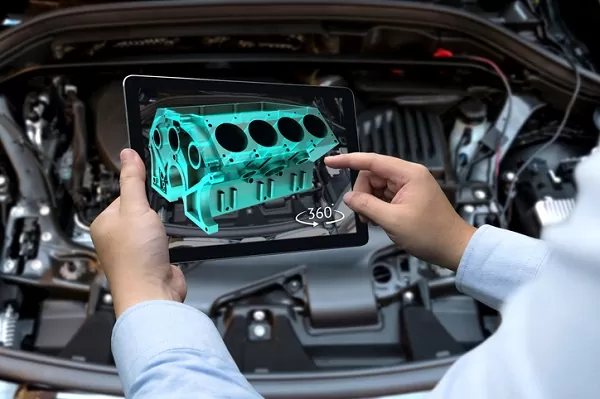In the ever-evolving automotive industry, vibration testing is becoming more essential than ever. With advancements in technology, engineering components must now be able to withstand greater levels of shock and vibration while being exposed to various environmental elements. Vibration tests are used to ensure that products can stand up to surprise changes in temperature, humidity levels, and other stress factors they might experience in real-world use.
Through comprehensive vibration analysis, engineers get a better understanding as to what parts will work together effectively — ultimately minimizing repair costs for both manufacturers and consumers while keeping safety paramount.
What is Vibration Testing and How Does it Help
Vibration testing is a crucial step in ensuring the safety and quality of vehicles. This method involves subjecting a vehicle to carefully controlled vibrations to simulate real-world conditions and identify potential issues. By analyzing the vehicle’s response to different frequencies and strengths of vibration, engineers can pinpoint any weaknesses or flaws in the design or manufacturing process. When it comes to Vibration Testing, it can also help refine and improve existing designs, leading to safer and more reliable vehicles. Ultimately, this testing helps to ensure that the vehicles we drive are as safe and dependable as they can be, giving us peace of mind on the road.
Different Types of Vibration Tests
Vibration testing has become a crucial part of the automotive industry, helping to ensure that the vehicles we drive are safe and reliable. Various types of vibration tests are conducted on different vehicle components and systems, ranging from engine mounts to steering wheels. Some of these tests include sinusoidal, random, and road simulation testing.
Sinusoidal tests involve applying a single frequency of vibration to a component, while random testing subjects the component to a range of frequencies and amplitudes that simulate real-world use. Road simulation testing, on the other hand, replicates the vibrations and forces experienced while driving on actual roads. By conducting these tests, manufacturers can locate potential design flaws and improve upon their products, ultimately providing customers with a better driving experience.
The Benefits of Vibration Testing for Manufacturers
As technology continues to advance, the frequency of vibration testing in manufacturing has risen dramatically, and for good reason – it’s a critical process that benefits both manufacturers and consumers alike. Vibration testing accurately assesses a product’s reliability by simulating the conditions it will undergo when in use. This process helps manufacturers identify potential weaknesses in their products that could lead to failure over time.
By addressing these issues before the product hits the market, manufacturers can save themselves the cost of recalls, repairs, and even lawsuits. Meanwhile, consumers can rest easy knowing that the products they purchase have undergone rigorous testing and will likely have a longer lifespan. In short, vibration testing is a win-win for all parties involved and has become an essential aspect of the manufacturing process.
Solutions to Make Vibration Testing More Efficient
Vibration testing is an essential process in ensuring the quality and reliability of products, but it can be a time-consuming and costly endeavor. Fortunately, modern solutions are available to simplify and streamline the testing process, making it more efficient and cost-effective. One such solution is the use of simulation software, which allows for virtual testing before physical testing, reducing the number of prototypes needed.
Additionally, advances in sensor technology have led to the development of more accurate and sensitive sensors, which can detect even the slightest vibrations. These advancements, along with other modern technologies, are revolutionizing the field of vibration testing, helping manufacturers enhance product safety and quality while saving time and money.
Vibration testing is a critical component of the automotive manufacturing process. As technologies continue to evolve, manufacturers must stay ahead of the curve to ensure their vehicles are safe and reliable in every way for consumers. To this end, investing in modern solutions like automated vibration testing systems can be a great way for companies to reduce costs while enhancing their quality assurance capabilities.
By leveraging the latest technologies available, automotive manufacturers can avoid costly recalls and maintain customer confidence in their products. What’s more, they can also use vibration studies as an effective tool to continually optimize vehicle design and performance. In short, vibration testing is both an indispensable part of the vehicle production process and a long-term investment that benefits everyone down the line. So if you’re looking to make sure your vehicles excel against any challenge out there, don’t forget about good old vibration testing – you won’t regret it!






